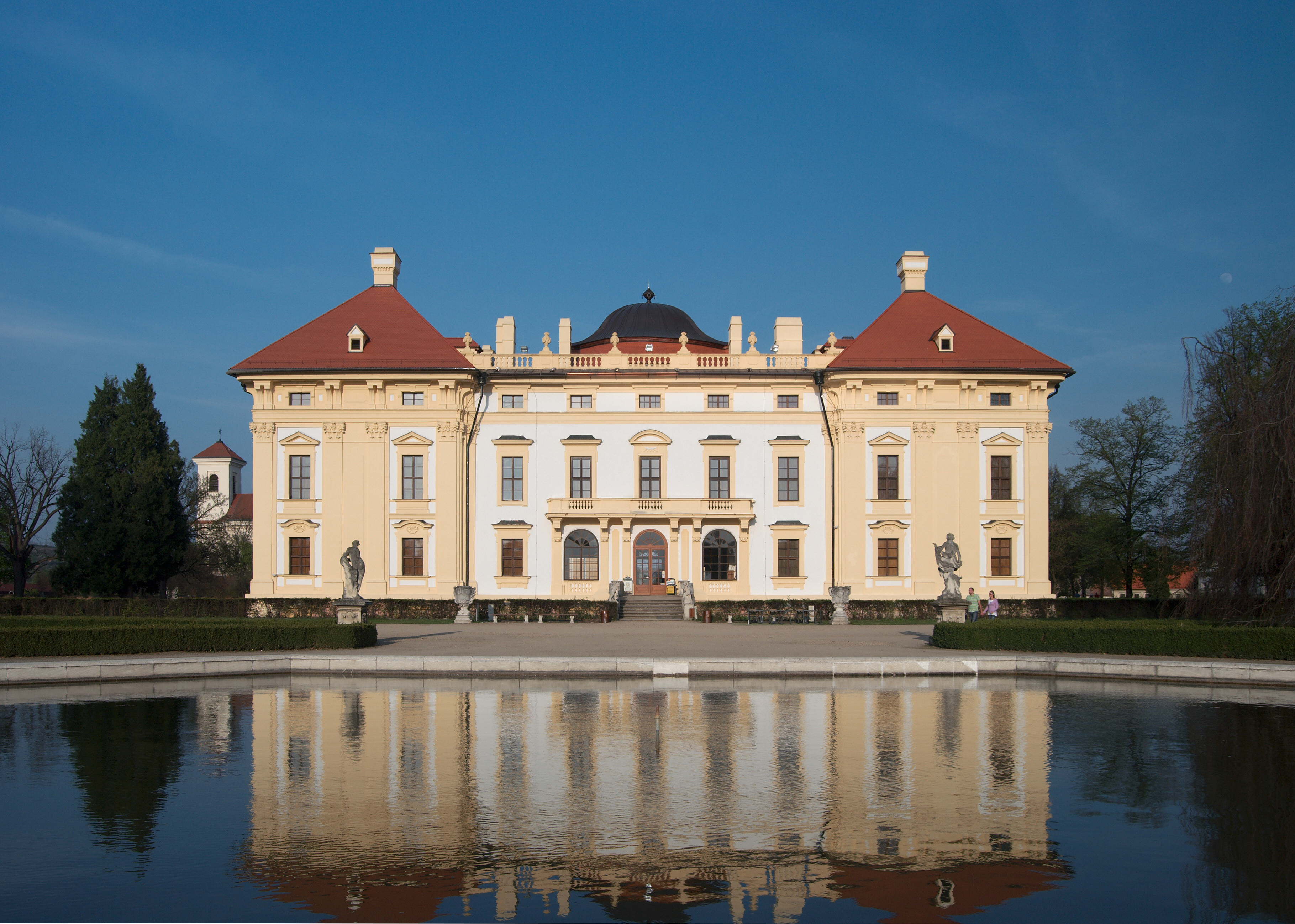|
Lubomír Tesáček
Lubomír Tesáček (9 February 1957 – 29 June 2011) was a Czech long-distance runner. He won the gold medal in the 3000 metres at the 1984 European Indoor Championships. He also represented his country at the 1986 European Championships and the Friendship Games since his country boycotted the 1984 Summer Olympics. He died on 29 June 2011, hit by a tram. (in Czech) International competitions Personal bests Outdoor * – 3:42.91 (Prague 1983) * – 7:46.99 (Prague 1983) * |
Slavkov U Brna
Slavkov u Brna (; ) is a town in Vyškov District in the South Moravian Region of the Czech Republic. It has about 7,300 inhabitants. The town gave its name to the Battle of Austerlitz, which took place several kilometres west of the town. The historic town centre is well preserved and is protected as an urban monument zone. Etymology The German name (and the former Czech name ) is derived from Latin ('new settlement'), which has gradually evolved over history through the names (1237), (1322), (1343), (1460) and (1611). The current Czech name is derived from the name Slávek (a colloquial name for Bohuslav), who probably owned a manor house here. This name was first documented in 1361. In 1918, Slavkov was renamed Slavkov u Brna ('Slavkov near Brno') to distinguish from other places with the same name. Geography Slavkov u Brna is located about east of Brno. It is situated on the border of three geomorphological regions: the northeastern part of the municipal territory li ... [...More Info...] [...Related Items...] OR: [Wikipedia] [Google] [Baidu] |
1986 European Athletics Indoor Championships
The 1986 European Athletics Indoor Championships were held at the Palacio de los Deportes in Madrid, Spain, on 22 and 23 February 1986. The track used at the stadium at the time was 164 metres long. (p. 505) Medal summary Men Women Medal table Participating nations * (15) * (2) * (15) * (3) * (20) * (2) * (23) * (9) * (25) * (1) * (19) * (5) * (5) * (1) * (3) * (19) * (4) * (16) * (8) * (9) * (21) * (37) * (8) * (4) * (1) * (29) * (5)See also * 1986 in athletics (track and field)References External links [...More Info...] [...Related Items...] OR: [Wikipedia] [Google] [Baidu] |
1957 Births
Events January * January 1 – The Saarland joins West Germany. * January 3 – Hamilton Watch Company introduces the first electric watch. * January 5 – South African player Russell Endean becomes the first batsman to be Dismissal (cricket), dismissed for having handled the ball, in Test cricket. * January 9 – British Prime Minister Anthony Eden resigns. * January 10 – Harold Macmillan becomes Prime Minister of the United Kingdom. * January 11 – The African Convention is founded in Dakar. * January 14 – Kripalu Maharaj is named fifth Jagadguru (world teacher), after giving seven days of speeches before 500 Hindu scholars. * January 15 – The film ''Throne of Blood'', Akira Kurosawa's reworking of ''Macbeth'', is released in Japan. * January 20 ** Israel withdraws from the Sinai Peninsula (captured from Egypt on October 29, 1956). * January 26 – The Ibirapuera Planetarium (the first in the Southern Hemisphere) is inaugurated in the city of São Paulo, Brazil. F ... [...More Info...] [...Related Items...] OR: [Wikipedia] [Google] [Baidu] |
People From Slavkov U Brna
The term "the people" refers to the public or common mass of people of a polity. As such it is a concept of human rights law, international law as well as constitutional law, particularly used for claims of popular sovereignty. In contrast, a people is any plurality of persons considered as a whole. Used in politics and law, the term "a people" refers to the collective or community of an ethnic group or nation. Concepts Legal Chapter One, Article One of the Charter of the United Nations states that "peoples" have the right to self-determination. Though the mere status as peoples and the right to self-determination, as for example in the case of Indigenous peoples (''peoples'', as in all groups of indigenous people, not merely all indigenous persons as in ''indigenous people''), does not automatically provide for independent sovereignty and therefore secession. Indeed, judge Ivor Jennings identified the inherent problems in the right of "peoples" to self-determination, as i ... [...More Info...] [...Related Items...] OR: [Wikipedia] [Google] [Baidu] |
